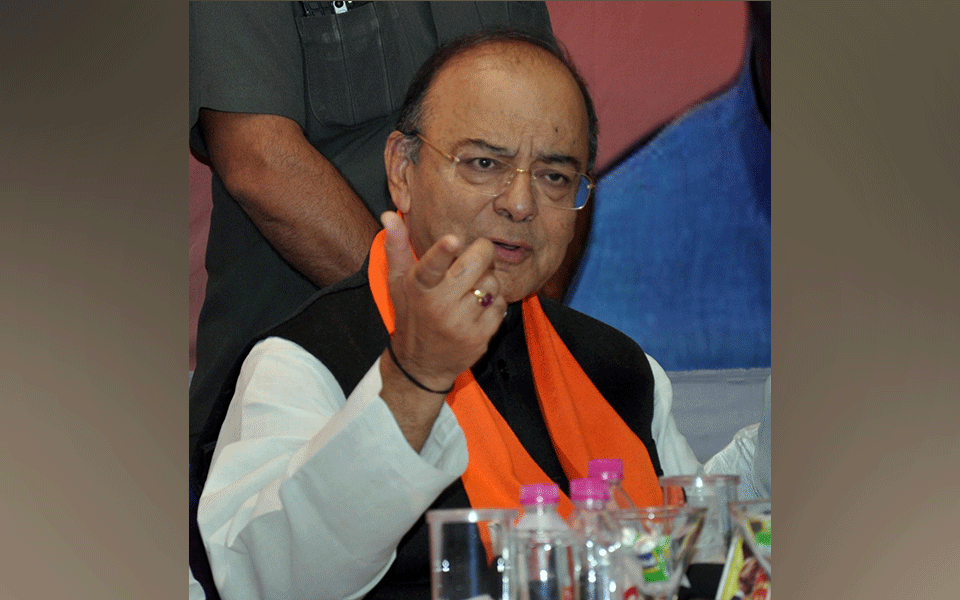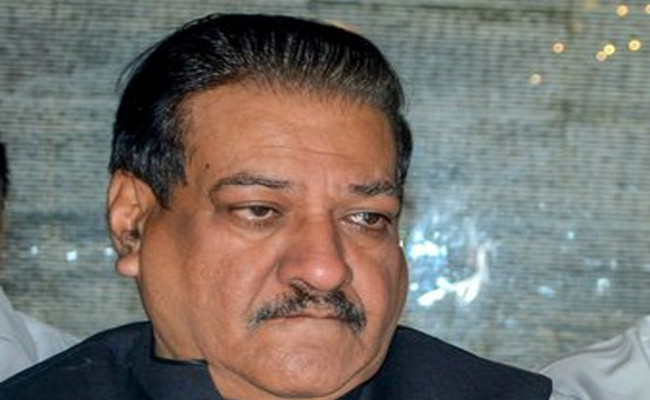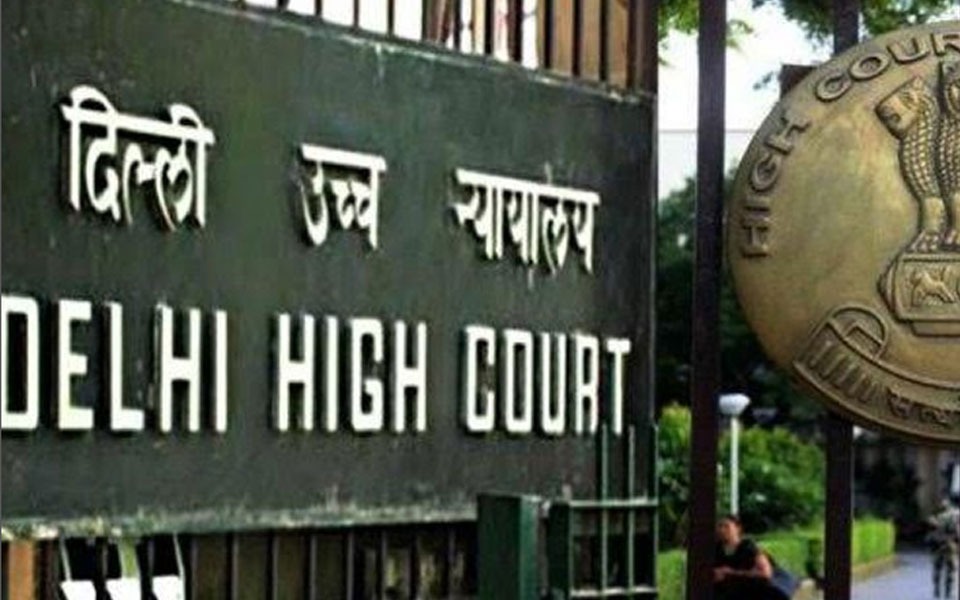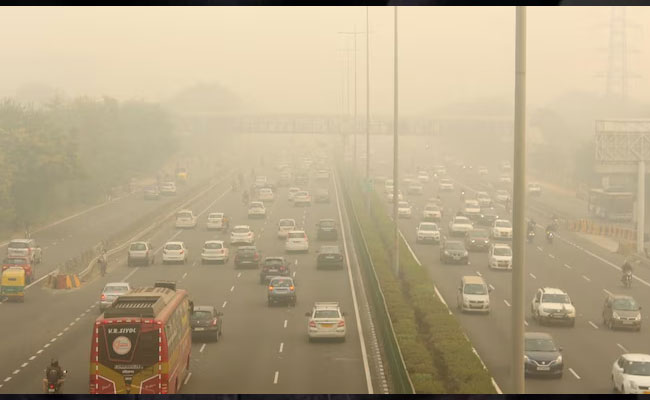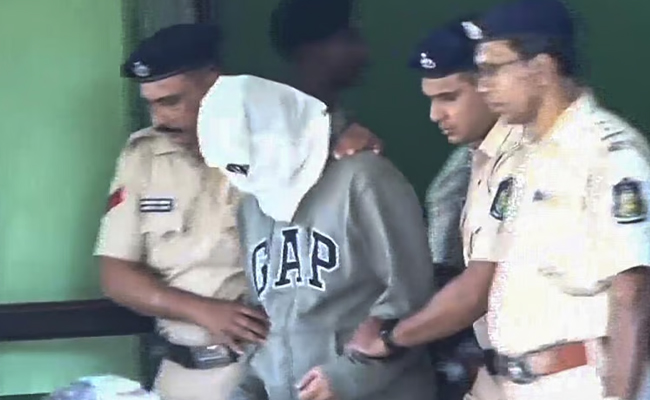New Delhi, Aug 26 : Referring to the latest International Monetary Fund (IMF) report on India, Finance Minister Arun Jaitley on Sunday said that it was only with NDA coming to power in 2014 that the economy had undergone a transformational change.
In postings over both Twitter and Facebook, Jaitley, who resumed his duties earlier this week, said that a comparison of the data released in 2014 and 2018 proved that high inflation, fiscal deficit and current account deficit, besides a standstill in the infrastructure and power sectors, as well as in allocation of natural resources, were some of the failures of the previous UPA government.
"We have come a long way. The last four years have seen a series of reforms, both legislative and otherwise, which have been carried on by the Government. The system has been substantially cleaned up and made more transparent," Jaitley posted on Facebook.
"Decisiveness has led to easier decision making and made the economy stand out before several other countries. I would urge all to read these two reports (IMF), the copy of which are now publically available," he said.
"The tightening of global liquidity has increased external pressures and heightened the focus on India's macroeconomic imbalances (high inflation, large current account and fiscal deficits) and structural weaknesses (particularly supply bottlenecks in infrastructure, power and mining)," The Finance Minister said regarding the report's references to the situation in 2014.
"Growth is expected to slow to 4.6 per cent this fiscal year, the lowest level in a decade, reflecting global developments and domestic supply constraints. Headline CPI inflation is expected to remain near double digits for the remainder of the fiscal year. The current account deficit is narrowing, driven by a significant improvement in exports, robust remittances flows, and a rapid diminution of gold imports.
"Nonetheless, India has very little room to adopt countercyclical policies, constrained by persistently-high inflation, and sizeable fiscal and external imbalances. Spillovers from renewed external pressures interacting with domestic vulnerabilities are the principal risks," he said referring to the situation in 2018.
"Stability-oriented macroeconomic policies and progress on structural reforms continue to bear fruit. Following disruptions related to the November 2016 currency exchange initiative and the July 2017 goods and service tax (GST) rollout, growth slowed to 6.7 per cent in FY 2017/18, but a recovery is under way led by an investment pickup", he added.
Let the Truth be known. If you read VB and like VB, please be a VB Supporter and Help us deliver the Truth to one and all.
Mumbai (PTI): Despite facing criticism, senior Congress leader Prithviraj Chavan on Wednesday stood by his controversial comments that India faced a "total defeat" in aerial fight with Pakistan on the first day of Operation Sindoor on May 7.
The former Union minister refused to apologise for his comments on the Indian military operation against terror hubs in Pakistan and PoK in aftermath of massacre of tourists at Pahalgam in Jammu and Kashmir in April.
Talking to reporters in Pune on Tuesday, Chavan claimed India faced a "total defeat in the aerial fight (with Pakistan) on May 7 which lasted for half-an-hour".
"One may believe this or not. After that the Indian Air Force got grounded and not a single aircraft took flight that day.... be it Gwalior, Bhatinda or Sirsa, there was a possibility of aircraft being shot down, so our complete Air Force was grounded," the former Maharashtra chief minister had said.
Hitting out at Chavan, Maharashtra Deputy Chief Minister Eknath Shinde accused the Congress of speaking the language of Pakistan. He said questioning the military action was akin to demoralising the morale of armed forces.
ALSO READ: New safety wristbands launched for children at Makkah’s Grand Mosque
"The criticism does not stem from the love of the nation, but love for Pakistan," said the chief leader of the Shiv Sena, a key constituent of the BJP-led NDA.
Chavan, however, remained defiant.
"There is no question of apologising. The Constitution has given me the right to ask questions," the Congress veteran asserted.
Chavan also questioned the need of having a 12-lakh strong Army when future wars will be about aerial combats and missiles. "During Operation Sindoor we saw that there was no movement of the Army even for a kilometre," he had said.
BJP Lok Sabha MP and spokesperson Sambit Patra said Chavan's remarks are loaded with sedition.
"He (Chavan) has refused to apologise. The Indian armed forces struck 100 kms inside the Pakistan territory and destroyed 11 air strips (of the Pakistani Air Force). He made remarks that the Indian Army did not even move an inch (during the military operation). This is nothing but a statement full of sedition, a statement of a traitor," Patra said, lashing out at the Congress leader.
The BJP spokesperson maintained the Congress appears to be standing with Chavan and alleged the Opposition party is playing into foreign hands.
Congress leaders Sonia Gandhi and Priyanka Gandhi Vadra should apologise for it, he added.
Union minister Giriraj Singh of the BJP insisted it was not right to devalue the valour of Indian armed forces.
Samajwadi Party MP Virendra Singh suggested that wherever armed forces are concerned, every Indian should be mindful of statements they make and ensure their comments do not demoralise the military.
Operation Sindoor was a result of "mistakes of politicians", he claimed.
TDP MP Krishna Devraylu said after the poll defeat in Bihar, the Congress is rattled and their leaders have been talking absurdly.
"Chavan's remarks are a prime example of this. This kind of disrespect to our armed forces is not necessary. If the Congress is angry with the NDA, it should show it in a different way and not drag armed forces into it," Devraylu opined.
AAP MP Ashok Mittal said such statements should not be made by any senior politician, especially by someone who has been a former chief minister.
The Indian armed forces registered a strong victory and destroyed terror launchpads in Pakistan during Operation Sindoor, Mittal added.

